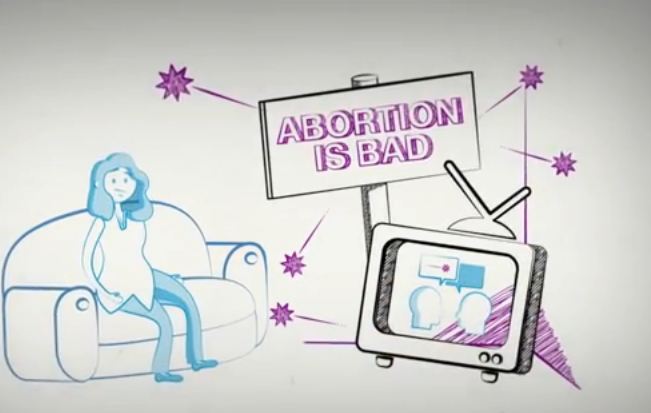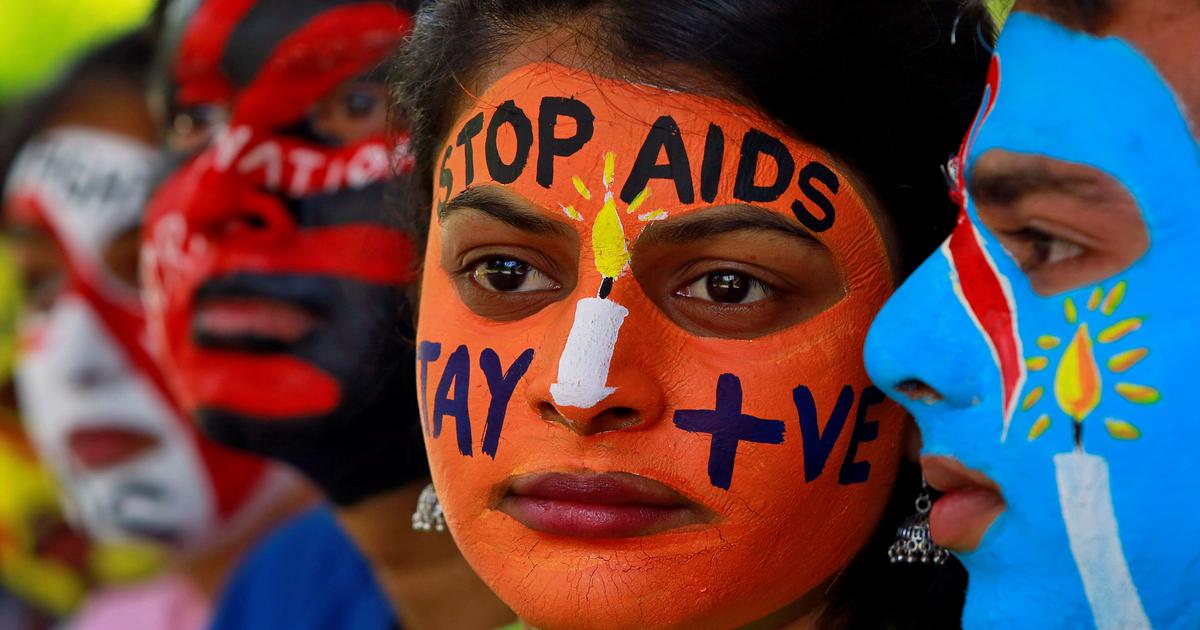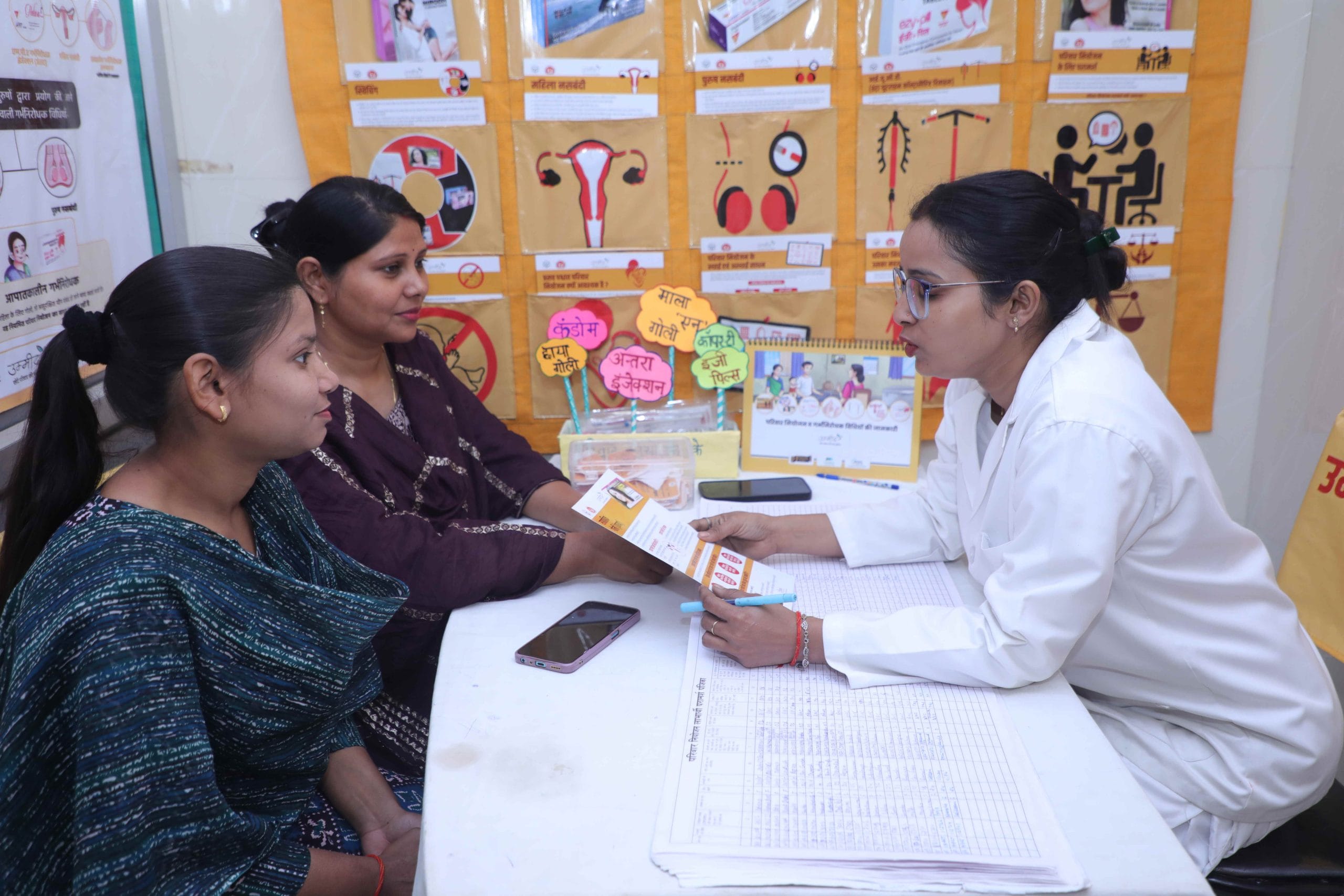Posted by Yashoda Dhakal
Early one morning I got a call from my childhood friend. It surprised me. She said, “Yashu, I need your help, it’s something serious and personal.” Finally, I came to know that, one of my friend’s closest friends had an unintended pregnancy and wanted to abort it. Sadly, due to some social restrictions and fear of exposure, she didn’t dare to seek out safe abortion service providers. So they wanted to know about medical abortion from me, expecting that I had dealt with similar cases. The irony was that they themselves were medical students!

Abortion is so highly stigmatised in our society that it seems the stigma is itself ‘communicable’ – in the sense that if anyone knew that a girl had an abortion, that person will be stigmatised as well.
Abortion stigma is defined as a shared perception that abortion is morally wrong and/or socially unacceptable. It is experienced through negative attitudes and behaviours related to anything that has to do with abortion. An inferior status is experienced by women who seek abortions or who have abortions, the abortion providers, and others involved in abortion care. Abortion stigma has disastrous consequences around the world and as a consequence, people seeking abortions are bullied, shamed, marginalised, and sometimes even punished, thus preventing them from seeking safe health care services. Abortion providers are harassed, dehumanised and targeted by regulation and by anti-abortion advocates. Abortion stigma thus leads to social, medical, and legal marginalisation of abortion care around the world and is a barrier to access to high quality, safe abortion care.
As a result of this stigma and lack of access, 47,000 women and girls died in 2008 with 5 million being left with injuries or disabilities.
The practice of abortion is as old as society itself! It may be restricted by law and prohibited by certain religions and customs. But the reality is that women have been having abortions for thousands of years and today, it is, in fact, one of the most common and safe medical procedures.
Worldwide, over 40 million women have an abortion every year. Despite the prevalence, abortion carries a social stigma that affects many people associated with it. As a result of this stigma and lack of access, 47,000 women and girls died in 2008 with 5 million being left with injuries or disabilities.

Leila Hessini, Ipas, in one of her articles “Abortion Stigma is Simply Discrimination: Here Is How We Get Rid of It”, mentions that abortion sigma is a mechanism of social control used to dehumanise and devalue women who need or decide, to terminate pregnancies.
Also read: The Abortion Pill: The How, The Why, And Everything In-Between
Now here came the question, “Why is abortion stigmatised?”
1. Abortion Is Stigmatised Because It Violates “Feminine Ideals” Of Womanhood
Abortion violates two fundamental ideas of womanhood: Nurturing motherhood and sexual purity. Abortion, therefore, is stigmatised because it is evidence that a woman has had ‘non-procreative’ sex and is seeking to exert control over her own reproduction and sexuality.
2. Abortion Is Stigmatised Because of Legal Restrictions
Even today 26 percent of women live in countries where abortion is legally restricted and many more live in places where they have to justify their abortion. Legal restrictions (like parental consent requirements, gestational limits, waiting periods, and mandated ultrasound viewing) which make it more difficult for women to obtain abortions and reinforce the notion that abortion is morally wrong.
technological advancements have made abortion one of the safest procedures.
3. Abortion Is Stigmatised Because It Is Viewed As Dirty Or Unhealthy
Anti-abortion forces accuse abortion as being dirty, illicit, and harmful to women. Nowadays, technological advancements have made abortion one of the safest procedures. Unfortunately, it is still practised unsafely in some places especially where abortion is illegal.
4. Abortion Is Stigmatised Because Anti-Abortion Forces Have Found It To Be A Powerful Tool
The anti-abortion forces use cultural barriers, religious faith, beliefs, and norms in stigmatising abortion. They demotivate women and create a vicious cycle of emotional and spiritual instability related to abortion enforcing them to seek abortion less frequently regardless of its legal restrictions.
Also read: What Stops Women From Accessing Safe Abortion? | #AbortionMeraHaq
Abortion stigma has such a strong impact that no one related to abortion, that is, either woman who seeks an abortion, supporters of abortion, and/or health personnel providing abortion, are not exempt from it. One should understand that criminalising abortion or stigmatising it doesn’t decrease the incidence of abortion. It instead motivates clandestine and unsafe abortions, threatening the lives of millions of women.
References
1. World Health Organisation. (2011). Unsafe abortion Global and regional estimates of the incidence of unsafe abortion and associated mortality (sixth ed.). Geneva 27, Switzerland: World Health Organization.
2. Norris, A., Bessett, D., Steinberg, J.R., Kavanaugh M.L., Zordo, S.D., Becker, D (2011). Abortion Stigma: A Reconceptualisation of Constituents, Causes, and Consequences. Women’s Health Issues. Doi:10.1016/j.whi.2011.02.010
3. Hessini, L (2012). Abortion Stigma is Simply Discrimination: Here Is How We Get Rid of It. Ipas, Global Fund for Women.
4. SEA CHANGE, Transforming the Culture of Reproductive Stigma. What is Abortion Stigma?
Yashoda is from Nepal and has been a long time Youth Champion for Abortion rights with ASAP and is currently works as a nurse with Manmohan Cardiac Center Teaching Hospital in Kathmandu. You can follow her on Facebook.
This piece was originally published in the ASAP blog and has been republished here with permission.
Featured Image Source: Medium
About the author(s)
Asia Safe Abortion Partnership (ASAP) is an abortion rights advocacy organization committed to capacity building at the regional level by connecting and boosting the work of abortion rights activists across Asia in the form of workshops, conferences and small grants.




